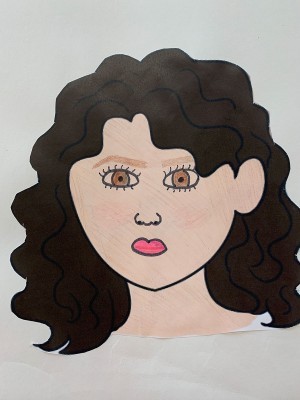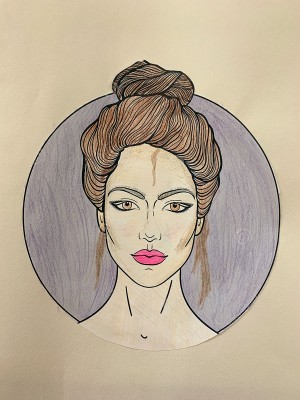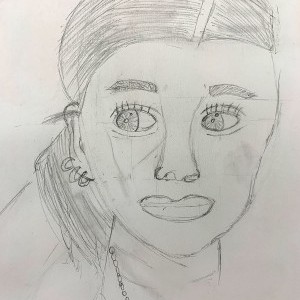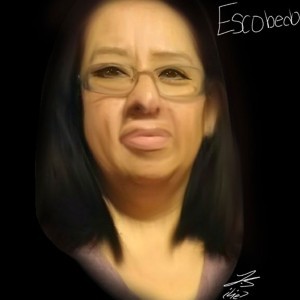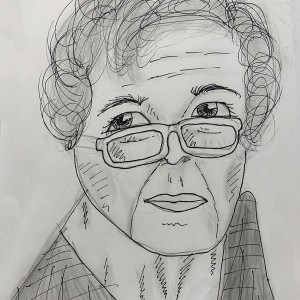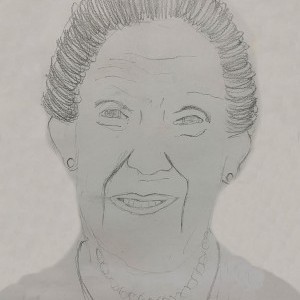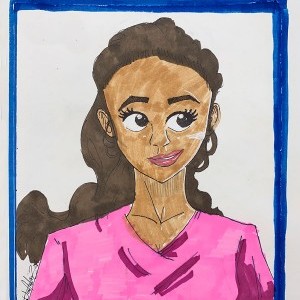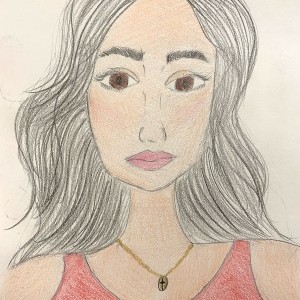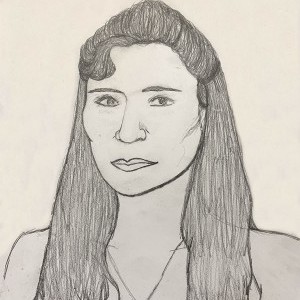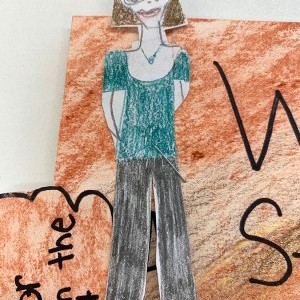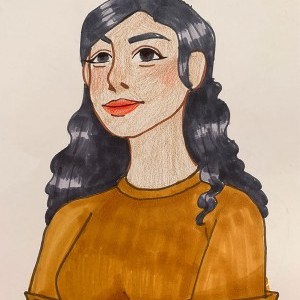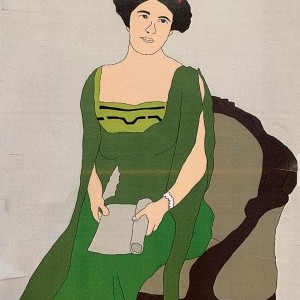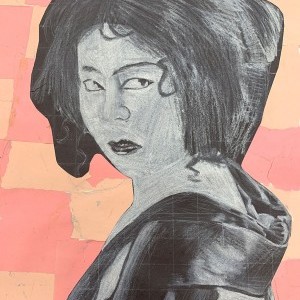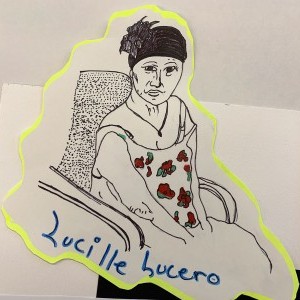Shea Anderson
Kunsmiller Creative Arts Academy | Denver, CO | 11th Grade
Inspirational Family Member
My Aunt Maria
I asked my aunt Maria about what her voting experience was like and how she felt about voting, and I discovered some interesting facts. I discovered that the very first time voting for her was not too exciting and that she wasn't passionate about it. Her friends and family didn’t really care too much about voting, and seeing that all her young life made her feel similarly. In that context, she was never pressured to engage civically and so, did not register to vote until she was in her early twenties. She explained that it felt more like a chore to her, and going through all of the paperwork was not too exciting for her, but as she has grown older and more mature she has changed her opinion. She elucidated how it took her some time to realize how incredible the power to vote is, and how she has the power to make change in her community as well as in her country. Now that she has learned the importance of voting, she stays up to date on what is currently going on politically and has grown somewhat of a passion for civics.
My aunt progressed and said that it took her a long time to appreciate having the right to vote in the first place because so many people don't vote for anything and at the same time people would die for that kind of privilege. This was particularly interesting to me personally because of how she knows that she has the power to participate in her governmental affairs. Maria chooses to use that power because she knows how lucky she is to live in the United States and how lucky she is to have the right to vote. She said that she has never had any issues or bad experiences voting and will continue to vote until she dies. She is very proud to have voted in every election since she was 25 and spreads the importance of voting to my cousins and to me, and she posts about voting on Facebook. She encourages everyone to use there given power and be grateful for having those privileges
I have learned a lot from listening to my aunt share her voting experience. I thought that her response to my question was interesting because when she was younger, they didn't really care about voting or taking on their civic duties and now we are told to register to vote as soon as we can and that voting is more important than we think. I will follow in my aunt’s footsteps and I will always vote because it is important for change and it is a right not given to everyone.
Historical Figure I Admire
Louise Otto-Peters
“ The history of all times, and of today especially, teaches that . . . women will be forgotten if they forget to think about themselves.¨ Louise Otto-Peters
To begin, Louise Otto-Peters was born in the Saxon city of Meissen, Germany, in 1819. She was born into an average middle-class family with her mother Charlotte and father Wilhelm Otto, who was a successful lawyer. Ms. Otto-Peters wanted to fight for equal rights for women and had a fiery passion for writing, so in April 1849 she got a job as an editor of the women’s newspaper Die Frauen Zeitung. When the Kingdom of Saxony made it impossible for a woman to edit such a publication, the newspaper was moved to Thuringia. She later got married to August Peters who was soon arrested for his rebellious stance against the government. They were married for a while until poor August passed away from heart disease.
Next, she had democratic connections that allowed her to work as a writer and to spread her ideas through her writings. Her political background helped her with her career and helped her with fighting for her rights. In 1855, Louise founded the women's journal Neue Bahnen. This was a very big accomplishment for her as well as for all women because there were not too many opportunities for them. She showed that women can be strong independent leaders and inspired so many other women to take charge and fight for what they want. Being a woman, she felt upset about having less rights than men and wanted that to change, so she used her writing to spark other women to stand up and say that they had enough.
She helped women to get their rights and is one of the many women who fought for us women today. Thanks to women like Louise, women today have the right to vote. All her life she worked as a writer and was the primary editor for Neue Bahnen. She continued to write poetry as well as books and sadly she passed away in 1895 as the primary editor for Neue Bahnen.
What the Project Means to Me
Louise Otto-Peters was liked by many, she was called by peers the "songbird of the German Women's Movement." She is as inspirational today as she was in the 1800s.
Explore the Archive
More From This Class
Click on the thumbnails below to view each student's work.Deadline Extended
There's still time to join Women Leading the Way.
Become a part of our storytelling archive. Enroll your class today.
Join the Project

